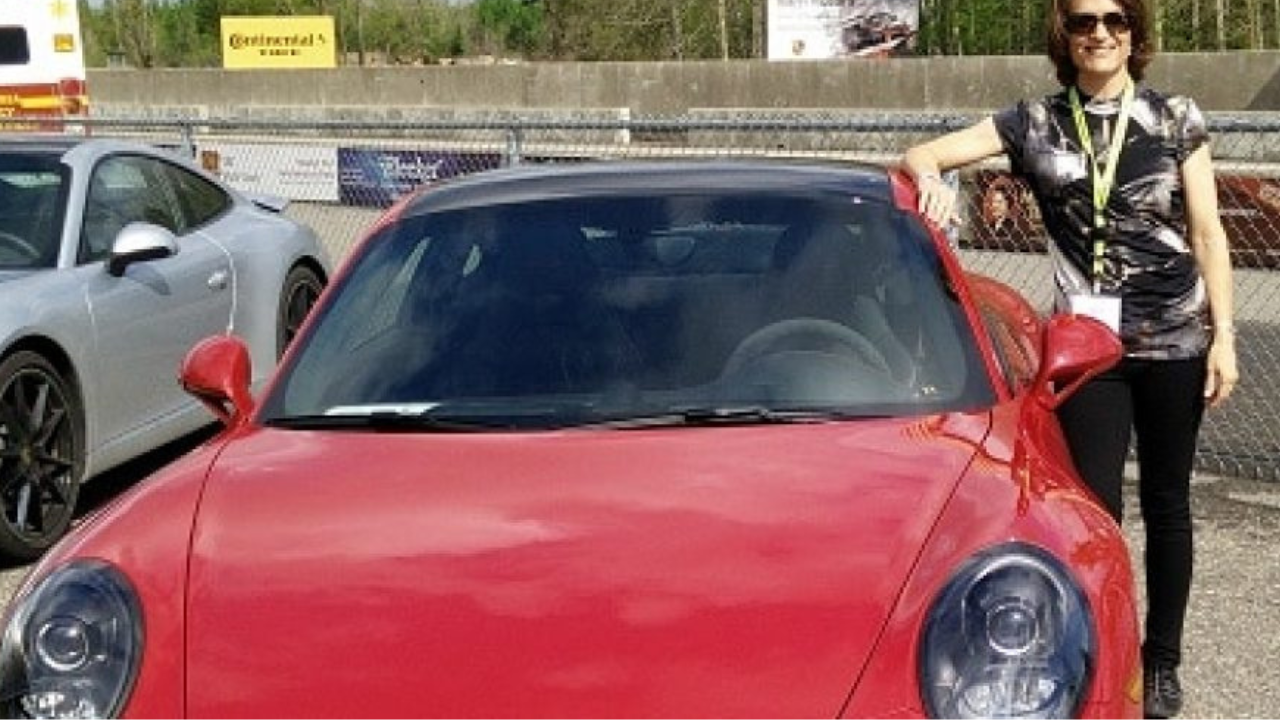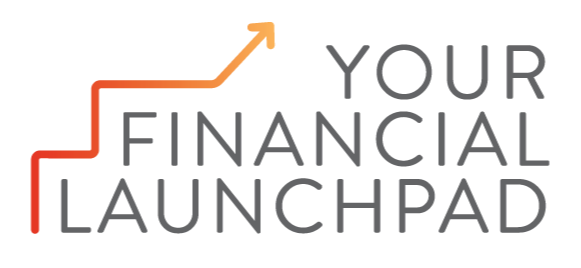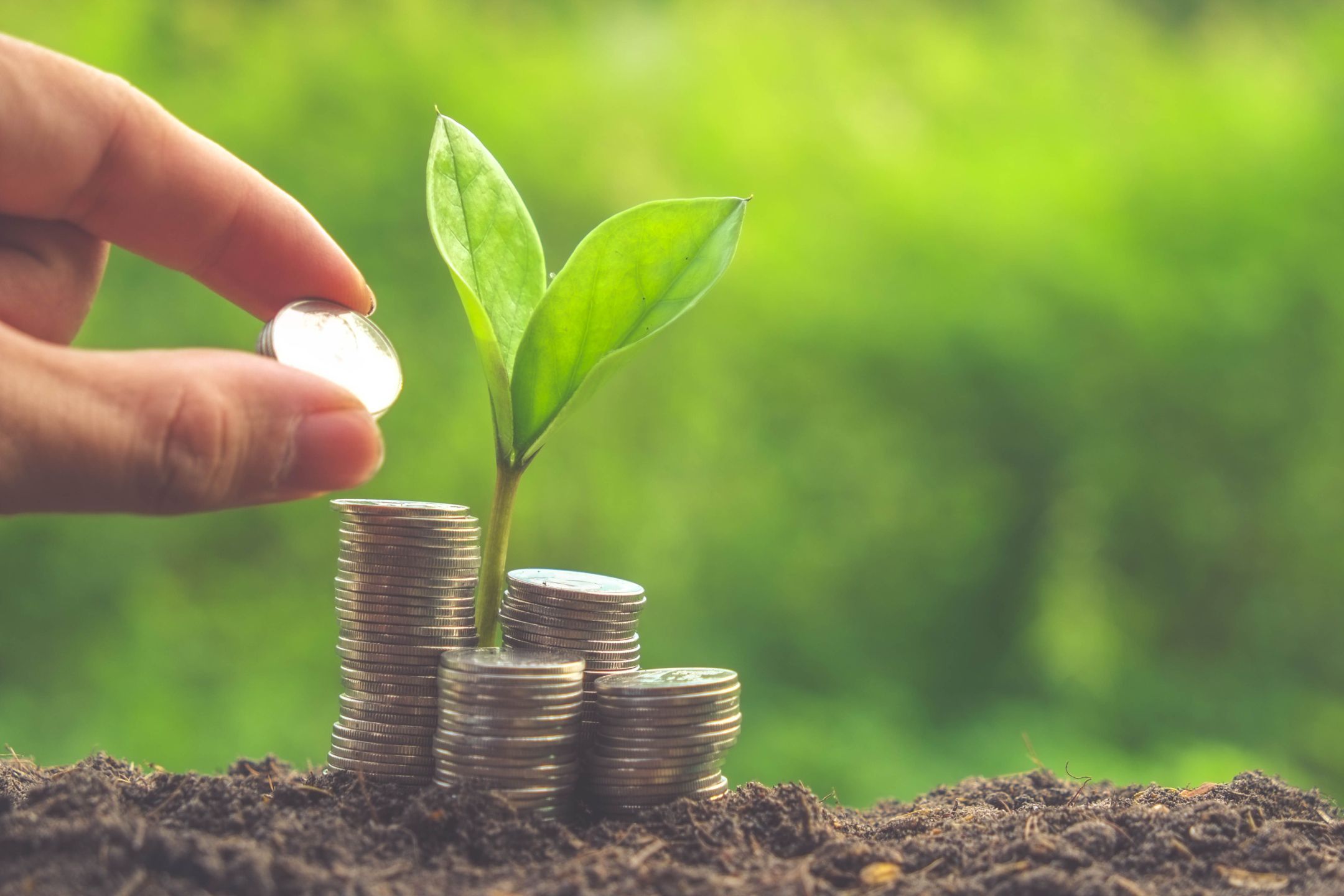Is Your Car an Asset? Ask One Question to Find Out

A few years ago, a friend took me and several other ladies to a racetrack to test-drive a variety of Porsche models.
That’s me in the photo above, standing beside one of the cars I drove. Here’s the full list of what I got to try out:
- Boxster GTS
- Cayman GTS
- 911 Carrera 4 GTS
- Panamera GTS
- Cayenne GTS
- Panamera S E-Hybrid
- Cayenne S E-Hybrid
What an adrenaline rush! Even the family vehicles drive like sports cars.
We hit speeds on the track that I have never attempted elsewhere. And yes, we were guided by a professional racer. The track owners are far too sensible to let wannabes have a go at it by themselves.
I walked away from the experience thinking that it is very easy to fall in love with gorgeous, performance vehicles like these.
At roughly the same time, I received a newsletter from an accounting firm in which the first two lines were: “Buy or lease? That is the question that arises whenever a business needs a new asset.”
And off it went on a discussion of the best approach when you’re looking for a new car.
But here’s a tricky question: Is a car really an asset?
When you fill out a mortgage application, there is a section in which you are asked to list your assets. That’s where cars show up because they have a market value.
If you were to put yours up for sale tomorrow, you’d get money for it. Therefore, it’s considered an asset by most people, including accountants.
BUT - is a car really an asset? I no longer think so.
I’ve come to adopt Robert Kiyosaki’s definition of an asset as something that puts money in my pocket.
A liability is something that takes money out of my pocket.
Robert Kiyosaki’s origin story, from which these definitions stem, have since been proven to be entirely fictional, but I think the definitions have merit.
For just a moment, forget what accountants, bankers, real estate agents, and financial planners have to say about assets and consider only the simpler definition.
In Kiyosaki's view, if something is an asset, it will put money in your accounts; if not, it will cost you money.
So let me ask you, does your car actually put money into your pocket?
Probably not.
No matter how much you may love your car, I’m willing to bet that it has never once paid you (unless you own a car rental company or you have a side gig as an Uber driver).
Sure, it may be useful to get you to work or in front of your clients, but at best it’s a tool to help you earn money; it’s not likely the source of your earnings.
And it’s an expensive tool at that. When you factor in insurance, regular maintenance, repairs, gas and depreciation, the numbers really start to add up.
We used to be a two-car family. Then my husband decided that he’d much rather take the bus or taxis to get to clients and the airport for business trips.
Ditching one car puts thousands of dollars back into our pocket every year, even when the costs of alternative transportation were factored in.
Just to be clear, I’m not arguing against having a vehicle. I’m simply pointing out that cars cost money, and if we start to think about them from Kiyosaki’s cash flow perspective, we realize pretty quickly that, in fact, they’re a liability.
They’re useful and sometimes essential, but they nonetheless take money out of our pockets.
It’s good advice
What I like about Kiyosaki’s take on the business of assets and liabilities is that it forces us to take a good look at the items we spend our money on.
His point is that if you focus on buying cash-producing assets, you will have the disposable income to enjoy other perks, like beautiful cars.
Back to the cars I drove around the track.
The recommended base prices of the models I drove ranged from $83,000 to $137,000 (at the time of publication). Are they worth it? That depends. If:
- you love the car
- and beautiful cars are high on your list of core values
- and your financial house is in order (i.e. you have an Emergency Fund set up, your investments are where they need to be to achieve your financial goals, and you have no corrosive debt)
- and you can easily afford it with respect to your earnings
... then they may be worth it. The feeling of being in such a beautiful car is compelling.
When you buy a car, remember this:
What you’re buying is really a liability.
And that’s OK as long as you’re not shooting yourself in the foot financially by ignoring other areas that need the dollars.
Remember the question to ask, “Will this put money in my account, or will it take money out?”
I’ve already told my husband that my next car will not be a sensible car. It will be a lovely thing – though not a Porsche – that feels terrific...
... and my children will not be allowed to breathe on it.
First though, I have many more assets to buy to produce positive cash flow.
What do you think about the asset vs liability question when it comes to cars? Chime in below.
Want to chat about the best way to improve or strengthen your finances?
Set up a free Discovery Call. We'll go over your current situation, the challenges you face, and some options to get you on the path to achieving your financial goals.


